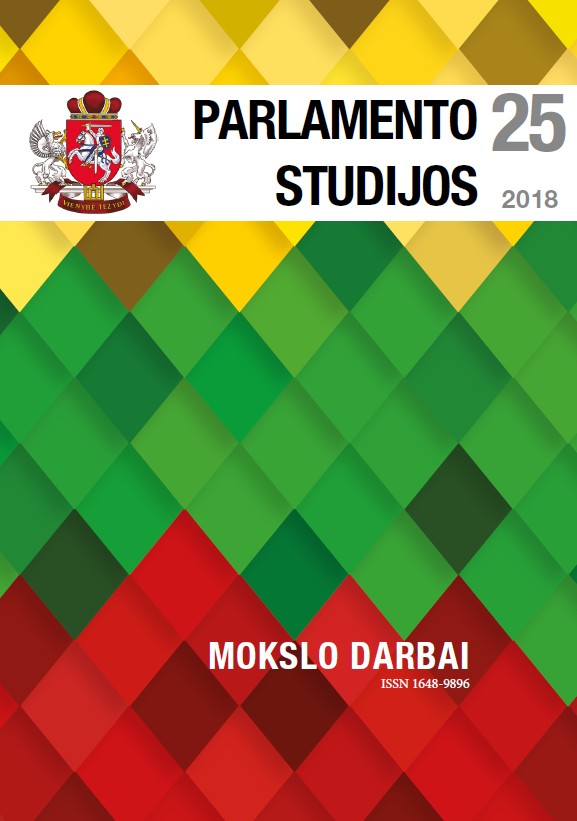Lithuanian Popular Peasants’ Union in Parliamentary Period (1920–1927): Some Historiographical Dilemmas
DOI:
https://doi.org/10.51740/ps.vi25.50Keywords:
parliamentarism, Popular Peasants’ Union, Christian Democrats, constitutional laws, worldview, Mykolas Sleževičius, Albinas RimkaAbstract
This article reviews the recent historical, legal and sociological researches on Lithuanian system of parliament during the democratic period (1920–1927). Researches reveal some controversial aspects of Lithuanian Popular Peasants’ Union’s work in Lithuanian parliament; the party’s electoral program corresponded with the development of Lithuania; the conditions for the coalition agreements between Lithuanian Christian Democrats and Lithuanian Popular Peasants’ Union and also the reasons for dissolving it; the impact of constitutional imbalance of powers to the instability of democracy; the origins of ideological disagreements and it’s influence on the division of two important political powers.
Main conclusions: 1) although the coalition of Lithuanian Popular Peasants’ Union and Lithuanian Christian Democrats used state of emergency legislation, they managed to consolidate a multi-ethnic Lithuanian society for the aim of statebuilding. The strongest disagreements in the coalition was affected by different worldviews; 2) Before the parliamentary elections Lithuanian Popular Peasants’ Union raised democratic ideals and their establishment to the system of the state. But for the patriarchal and catholic society democratic ideals seemed far-fetched and incomprehensible. So the attempt to implement it together with Lithuanian Social Democratic Party after the elections to the III Parliament caused a threat for the stability of the state.








 The metadata of the scholarly journals and publications of the Lithuanian National Martynas Mažvydas Library is distributed by
The metadata of the scholarly journals and publications of the Lithuanian National Martynas Mažvydas Library is distributed by 